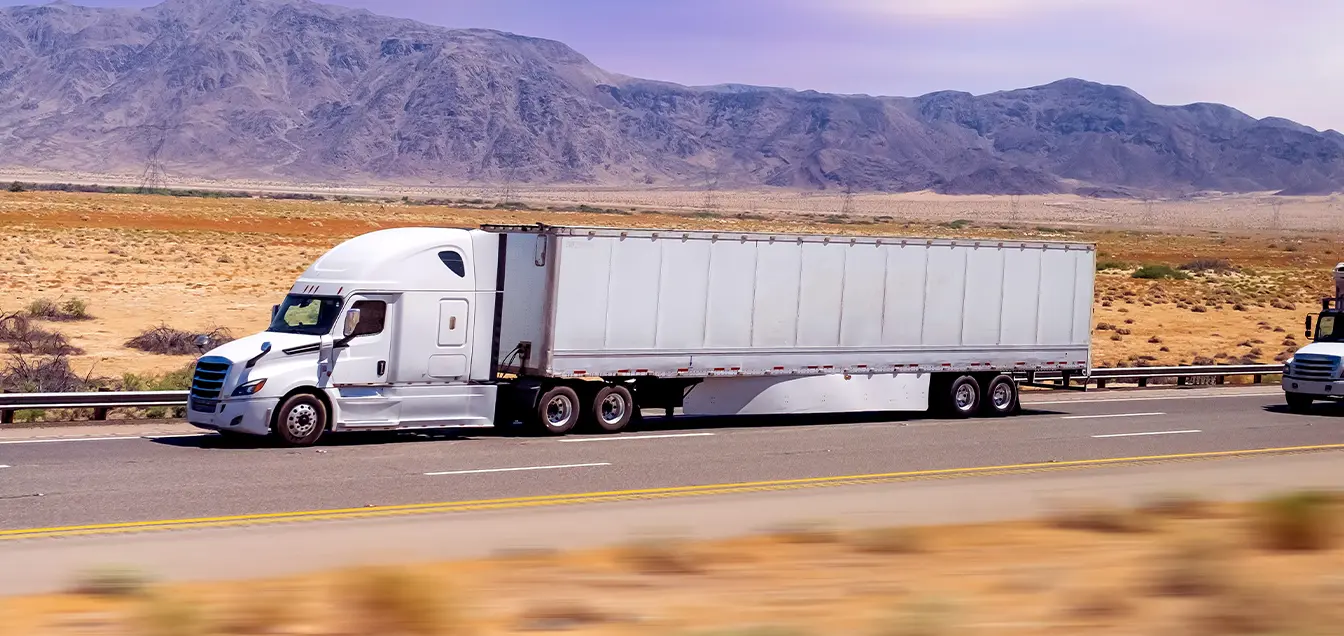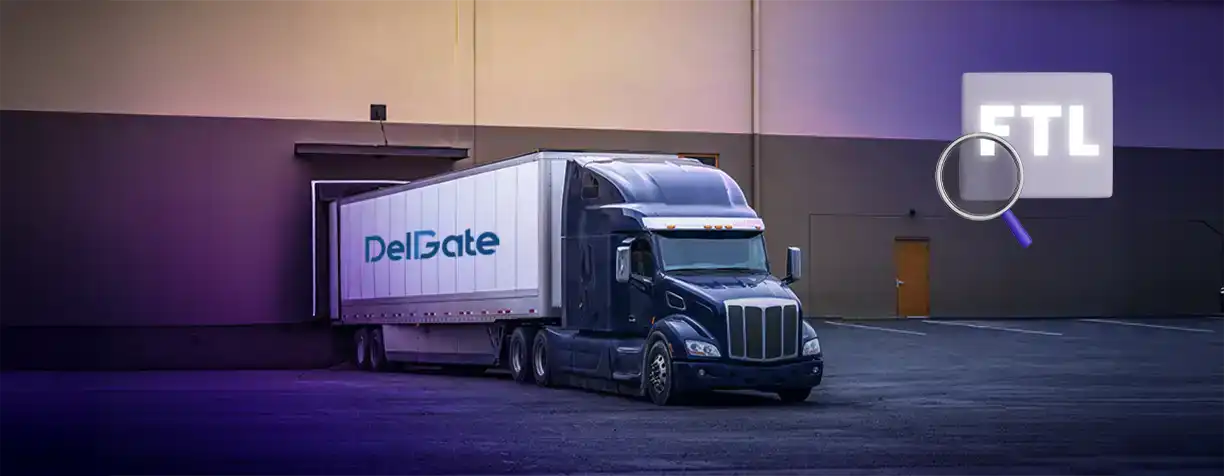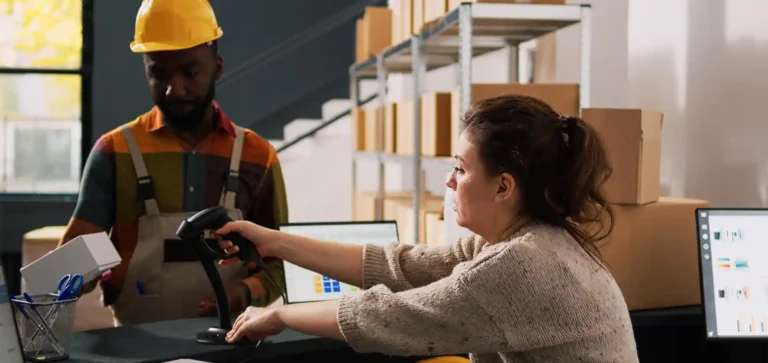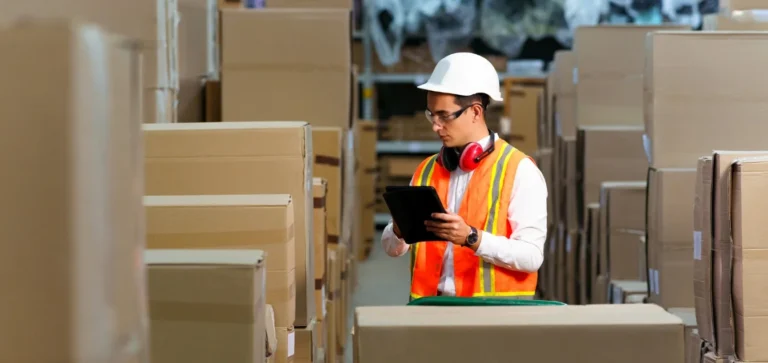Understanding FTL meaning is essential for businesses looking to ship large quantities of goods efficiently. Whether you’re a manufacturer, retailer, or e-commerce store using a fulfillment center in Canada, Full Truckload (FTL) services can help you achieve fastest shipping in Canada standards with higher control and lower risk of damage.
Table of Contents
What is FTL Trucking Meaning?
FTL trucking meaning refers to the use of an entire truck for a single shipment. This method is ideal when you have enough cargo to fill a truck or when you want your goods to be the only ones in the truck for faster delivery.
What is FTL Shipping Meaning?
FTL shipping meaning involves booking a truck exclusively for your freight. There are no other stops, ensuring direct delivery. This method is preferred by companies with high-value or time-sensitive goods, and it’s popular in the courier services in Canada industry.
What Does FTL Mean in Logistics?

What does FTL mean in logistics? It means a dedicated freight service that guarantees timely and intact deliveries. The FTL meaning in logistics is about direct shipments, minimizing handling, and reducing delays compared to other methods.
What is FTL? Understanding the Basics
What is FTL? FTL stands for “Full Truckload,” and it’s used when a shipment takes up the entire space of a truck. The FTL definition focuses on cost efficiency, speed, and reduced risk. With no freight-sharing involved, it’s a favorite among large-volume shippers.
FTL Full Truck Load
An FTL Full Truck Load gives you complete control over your freight—no splitting, no combining shipments—just your cargo in transit. Businesses looking for same-day delivery in Canada often rely on full truckload services for reliability.
What Does FTL Stand For?
What does FTL stand for in freight? It stands for Full Truckload. This option is ideal when a single customer needs an entire truck, ensuring faster transport with minimal disruptions. The FTL meaning in logistics highlights its efficiency and security for high-volume shipping.
What is FTL? A Quick Recap
What is FTL? It’s a logistics term meaning Full Truckload. The FTL meaning goes beyond just filling a truck—it’s about optimizing delivery times, protecting goods, and maintaining consistency. What does FTL mean for your business? It means reliability.
FTL vs LTL: What’s the Difference?
FTL vs LTL—the choice depends on your shipment size and urgency. FTL (Full Truckload) is for large, time-sensitive deliveries. LTL Shipping in Canada involves sharing truck space with other shipments, which can slow down delivery. Choose based on volume and timing needs.
FTL Platform for Smart Shipping

An FTL platform helps businesses find the best full truckload services. With real-time tracking and pricing, these platforms simplify the process. Companies like DelGate, a top trucking logistics company, offer intelligent FTL platforms for clients seeking efficient transport.
FTL Definition in Supply Chain
The FTL definition in supply chain terms means a shipment that occupies the full capacity of a truck. It ensures fewer touchpoints and a direct route, making it perfect for fragile or high-value goods. FTL stands for speed and efficiency in modern logistics.
FTL Meaning for Canadian Businesses
The FTL meaning in logistics is especially relevant in Canada, where vast distances make direct routes more efficient. A reliable 3PL warehouse in Canada, like DelGate uses FTL services to ensure timely fulfillment, reducing delays across provinces.
DelGate: Canada’s Leading FTL Provider
When looking for the best 3PL Canada has to offer, DelGate is a trusted name. They offer competitive trucking rates per km Canada, dependable routes, and customizable services. DelGate’s FTL capabilities stand out among courier services.
Transloading in Canada: How FTL Plays a Role
Transloading in Canada often uses FTL to move goods between rail and truck. This helps avoid delays and maintain inventory flow. Full truckload services offer flexibility, especially for large-scale shipments needing quick reallocation.
Choosing the Right Trucking Service
Choosing the right trucking service means considering volume, speed, and budget. FTL is great for full-capacity shipments. Companies like DelGate ensure your freight arrives fast, making them a top choice for the fastest shipping in Canada.
What Does FTL Mean for E-Commerce?
For e-commerce retailers, what does FTL mean? It means fewer delays, better inventory management, and improved customer satisfaction. Shipping directly from a fulfillment center in Canada via FTL helps maintain reliable delivery schedules.
What Does FTL Stand For in Logistics?
In logistics, what does FTL stand for? Full Truckload—used when a business has enough goods to justify an entire truck. The FTL meaning here is reliability, especially when using top-tier partners like DelGate.
Benefits of FTL for Manufacturers
Manufacturers love the FTL meaning in logistics because it ensures large shipments move efficiently. FTL supports lean inventory practices and faster distribution from the production facility to customers or retailers.
How FTL Supports Retail Distribution
Retailers benefit from FTL by moving bulk goods from warehouses to stores. When working with a reliable 3PL warehouse, FTL keeps stock levels consistent and helps avoid costly delays.
FTL and Cross-Border Logistics

FTL is also effective for cross-border shipping between Canada and the U.S. What does FTL stand for in cross-border terms? Simplicity and speed. Direct shipments reduce customs hold-ups and ensure timely delivery.
FTL Shipping in Peak Seasons
During high-demand periods like holidays, FTL shipping meaning becomes crucial. Businesses that rely on FTL meaning in logistics ensure product availability even when carriers are overwhelmed.
Final Thoughts: Is FTL Right for You?
Understanding the FTL meaning helps you decide whether it suits your business needs. If you’re handling large shipments or need fast delivery, FTL may be your best option. FTL stands for reliability, and with partners like DelGate, you’re in capable hands.





